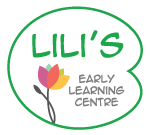Hygiene practices are essential for the effective management of children’s health. Young children’s immune systems are not fully developed. A group setting environment potentially places additional strain on contagious conditions.
LEL promotes hygienic practices and prevents the spread of infections by implementing the following strategies:
- effective hand washing
- hygienic cleaning techniques
- handling, storage and disposal of body fluids
- maintenance of a hygienic environment
- knowledge of infectious diseases and exclusion guidelines
- identifying and excluding sick children and staff
- promoting and maintaining records of children and staffs immunisation status
We have a duty of care to ensure that all persons are provided with a high level of protection during the hours of the service’s operation.
All children must have immunisation records attached to their enrolment form.
Child exclusion periods are set by information received from both state and federal authorities. Where required, direct contact will be made with the Victorian Medical Authorities and relevant information will be made available to all parents.
All staff are expected to follow the hygiene procedures as detailed above.
Staff are encouraged not to come to work if they are unwell, as their presence may contribute to the spread of infections to other staff and children. If your child is suffering from an infectious disease you must keep them at home until they are well. Please provide a doctor’s certificate confirming that your child is well enough to return to the centre. If your child develops a fever, vomiting, diarrhea or any other infection, they are to be kept at home until they have recovered. Exclusion times are set by the Health Department and apply for all infectious diseases.
Many of the hygiene habits developed during childhood will continue throughout life. Our staff are to role model to the children the hygiene practices which will reduce the likelihood of cross infection and explain the reasons for them. Experiences that promote basic hygiene awareness will assist children to become competent and independent, and develop valuable life skills.
All staff will follow strict hygiene routines while in the centre. Hand washing with soap will be carried out by all staff and children before preparing, serving or eating food, after each nappy change or toilet assistance, after wiping anyone’s nose, after toileting themselves and after handling animals.
Staff will also adhere to the following:
- disinfect nappy change area after each use
- use disposable gloves for all nappy changes
- wear disposable gloves for handling ALL potentially infectious or contaminated substances
- ensure that food that has been dropped on the floor is not eaten
- ensure that eating and drinking utensils are not shared by children.
- use separate cloths or tissues to wipe each child’s face and nose.
- dispose of tissues immediately after use.
- ensure that bedding is never shared by children and is washed daily
- actively promote children’s washing of hands
- encourage children to flush toilet after use.
- approach ALL situations involving bodily fluids employing universal precautions. i.e handle ALL bodily fluids with the assumption that they are contaminated and contagious.
- plan and promote children’s understanding of basic personal hygiene practices including dental hygiene through role modeling and active weekly planning.
- play equipment and resources will be used hygienically and stored in a clean and hygienic manner.
- regularly disinfect hard surface equipment and wash soft coverings to ensure that bacterial loads on equipment and resources is minimized.
Sourced: Education and child care services National
Regulation 2012
Food and Safety Regulation 2001
Staying Healthy In Childcare - National Health and Medical Research Council
Policy reviewed August 2017

